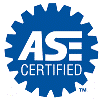
Archive for April 2022Good Timing: Proper Timing Belt Replacement Saves Money for Kingwood DriversPosted April 24, 2022 9:01 AMKnowing how their engine works can help Kingwood drivers make informed decisions about auto care and prevent repairs to their vehicles. This is especially true when it comes to timing belts. Kingwood Service Center It Pays to Take Care of Your Transmission at Kingwood Service CenterPosted April 17, 2022 10:00 AMIf you've been paying attention, you've noticed that vehicle engines are getting more and more powerful in Kingwood. At the same time, they are getting better and better fuel economy. I've gotta tell 'ya, most of that's because of technological advances in transmissions. To get a better understanding of why that is, let's talk bicycles. Kingwood Service Center DOG FOOD IN YOUR ENGINE (Keeping Rodents out of your Engine)Posted April 10, 2022 7:54 AMA technician was telling us the other day that he was servicing an engine and spotted something he'd never seen before: A collection of dry dog food siting on a horizontal metal ledge near the base of the engine. It was neatly stashed and was in a spot where the food pellets couldn't have simply fallen down in there. Even though it's the first time he'd seen dog food in an engine, he immediately knew what was going on. Critters like mice or chipmunks had found the dog food somewhere nearby and had used the engine as a nice storage unit. Mice, squirrels, chipmunks—you name it—like the heat of the engine. And they'll use that to store up supplies of food for use in cold weather when outside food supplies are scarce. The problem is they'll also chew on engine components while they're there. And they can do a lot of damage if they start gnawing on the wires. Depending on how much of your electrical system needs to be replaced, repairs can mount up to the thousands of dollars. Those electrical problems can be tricky to track down, too, because the rodents can get to spots technicians don't have easy access to. Oh, the signs are there; they'll find mouse droppings, acorns… even full mouse nests in your engine. Yikes. OK, but even if you get your vehicle fixed, how do you keep the critters from simply setting up their personal pantry again? Here are some things to try:
The next time you bring your vehicle into Kingwood Service Center for maintenance or service, your technician will be on the lookout, too. Hey, the dog food belongs in the dog's dish, not supplying fast food for little critters with razor-sharp teeth that can create electrical system mayhem. Kingwood Service Center Change is Good (Oil Change)Posted April 3, 2022 10:25 AMYou've heard that expression, change is good. When it comes to your vehicle's oil, change is not only good, it's vital for the health of the engine. But there's one question that puzzles many drivers: how frequently should my vehicle's oil be changed? There is not one simple answer, but here are some guidelines that will help. It used to be pretty much a rule of thumb that vehicles got their oil changed once every 3 months or 3,000 miles/5,000 kilometers. But times have changed. Oil formulations have gotten better and engine designs have made longer oil change intervals possible. Most experts advise you to read the recommendations that come from the manufacturer that designed and built your vehicle. Their designers and engineers know more about your vehicle than anyone else. They spell out their recommended oil change interval and type of oil in your owner's manual. Many automakers say you can go at least 5,000 miles/8,000 kilometers between oil changes and many recommend even longer intervals now. If you use synthetic oil, it doesn't have to be changed as often. Ever wonder why you have to change your oil? Your vehicle lives in a dirty environment. Contaminants build up in your engine oil and, after time, they inhibit the lubricating properties of the oil. Without optimal lubrication, increased friction inside the engine starts wearing down the metal parts, shortening the engine's life. Not only do vehicle manufacturers recommend oil change intervals in the manual, many also now alert drivers by a light or other electronic indicator on your dash. It doesn't exactly say, "Hey, time get your oil changed. This oil's starting to wear on me." But it does give you a pretty good hint. Some of these warning systems simply measure the distance you've traveled. More sophisticated vehicles have sensors that measure temperature, driving time and engine revolutions to determine when the oil is getting past its useful life. Here's one situation where it's easy to see the light. Do yourself a favor and don't wait too long before coming in for an appointment at Kingwood Service Center. Oh, and driving habits matter, too. Short trips with a lot of stop-and-go driving will stress your engine and oil more than longer trips at highway speeds. And here's one more plus side to getting your oil changed regularly at Kingwood Service Center in Kingwood. Our technician will also keep an eye on the rest of your vehicle to spot anything that might need attention. The bottom line is this: Oil changes are good for your vehicle in so many ways and probably the most important maintenance service you can get. Kingwood Service Center | ||
SearchArchiveApril 2016 (16)May 2016 (5) June 2016 (4) July 2016 (4) August 2016 (5) September 2016 (4) October 2016 (5) November 2016 (4) December 2016 (4) January 2017 (5) February 2017 (4) March 2017 (4) April 2017 (5) May 2017 (4) June 2017 (4) July 2017 (4) August 2017 (4) September 2017 (3) October 2017 (4) November 2017 (5) December 2017 (3) January 2018 (5) February 2018 (4) March 2018 (4) April 2018 (5) May 2018 (4) June 2018 (4) July 2018 (5) August 2018 (4) September 2018 (5) October 2018 (4) November 2018 (4) December 2018 (5) January 2019 (5) February 2019 (4) March 2019 (4) April 2019 (4) May 2019 (4) June 2019 (5) July 2019 (4) August 2019 (4) September 2019 (5) October 2019 (4) November 2019 (4) December 2019 (5) January 2020 (5) February 2020 (4) March 2020 (5) April 2020 (4) May 2020 (5) June 2020 (4) July 2020 (4) August 2020 (5) September 2020 (4) October 2020 (4) November 2020 (5) December 2020 (4) January 2021 (6) February 2021 (4) March 2021 (4) April 2021 (4) May 2021 (5) June 2021 (4) July 2021 (4) August 2021 (5) September 2021 (4) October 2021 (5) November 2021 (4) December 2021 (4) January 2022 (6) February 2022 (4) March 2022 (4) April 2022 (4) May 2022 (5) June 2022 (4) July 2022 (5) August 2022 (4) September 2022 (4) October 2022 (5) November 2022 (4) December 2022 (4) January 2023 (5) February 2023 (4) March 2023 (4) April 2023 (5) May 2023 (4) June 2023 (4) July 2023 (5) August 2023 (4) September 2023 (4) October 2023 (5) November 2023 (4) December 2023 (5) January 2024 (5) February 2024 (4) March 2024 (5) April 2024 (3) | CategoriesAir Conditioning (12)Alignment (15)Alternator (4)Auto Safety (4)Automotive News (7)Battery (15)Brakes (13)Cabin Air Filter (8)Check Engine Light (4)Cooling System (15)Customer Detective Work (1)Dashboard (1)Diagnostics (4)Diesel Maintenance (1)Differential Service (2)Drive Train (5)Emergency Items (1)Engine Air Filter (1)Exhaust (8)Fluids (13)Fuel Economy (8)Fuel Saving Tip: Slow Down (2)Fuel System (37)Headlamps (5)Inspection (6)Keys to a long lasting vehicle (4)Maintenance (42)Monitoring System (3)Oil Change (4)Older Vehicles (4)Parts (6)Safe Driving (1)Safety (4)Serpentine Belt (5)Service Intervals (6)Service Standards (11)Shocks & Struts (5)Spark Plugs (2)Steering (12)Suspension (2)Timing Belt (5)Tire Rotation and Balancing (1)Tires (8)Tires and Wheels (33)TPMS (2)Transfer Case Service (1)Transmission (7)Trip Inspection (4)Warranty (1)Water Pump (1)What Customers Should Know (52)Wheel Bearings (1)Windshield Wipers (8)Winter Prep (3)Winter Tires (1) | |
What our clients are saying about us
We have established longterm and stable partnerships with various clients thanks to our excellence in solving their automotive needs!
After 20 years, they are still the best in Kingwood.

KSC replaced both of my front struts (2016 Honda Pilot Touring). The work was done efficiently and the results are great. The car drives much smoother. The price was fair.








